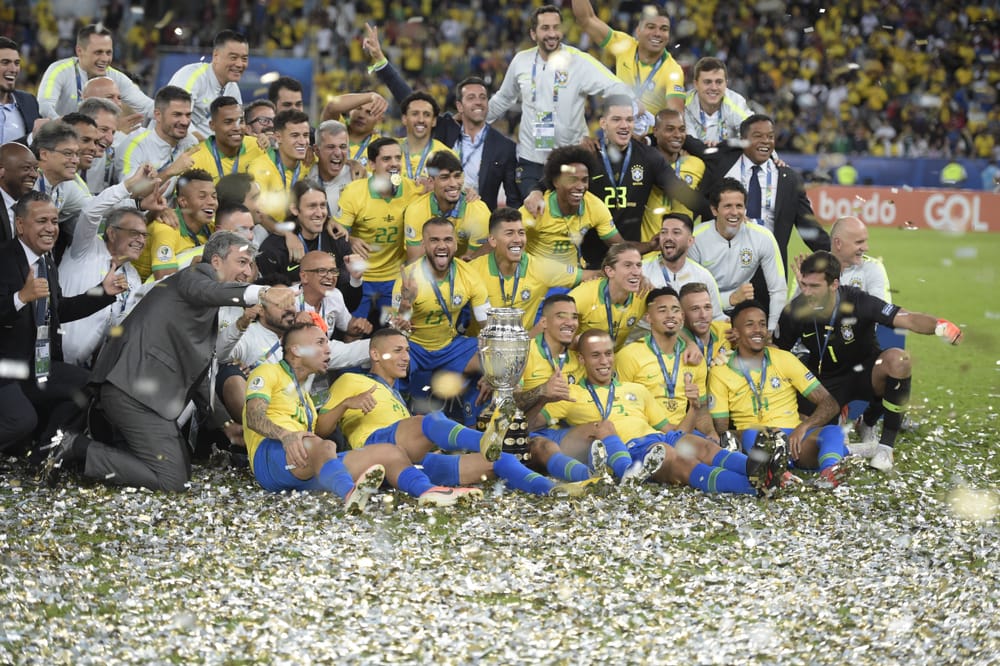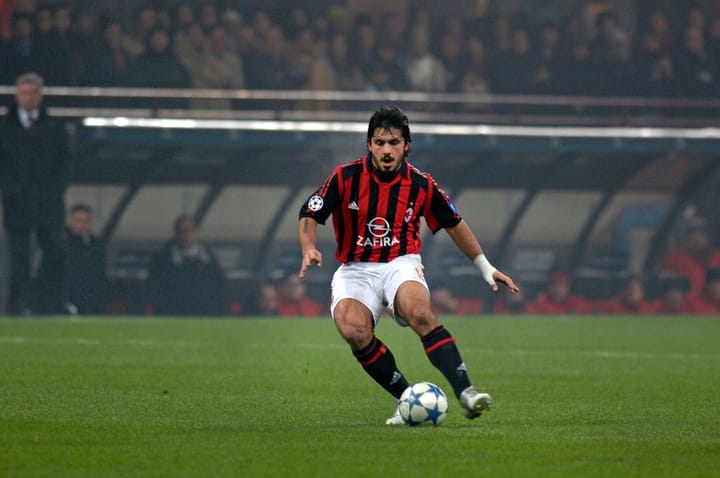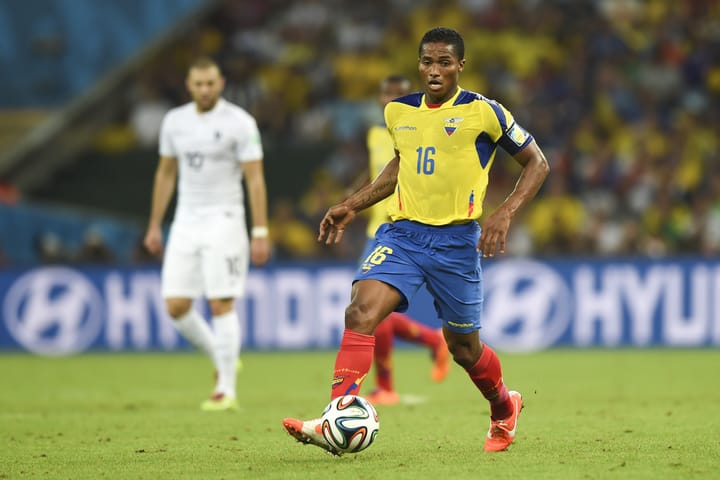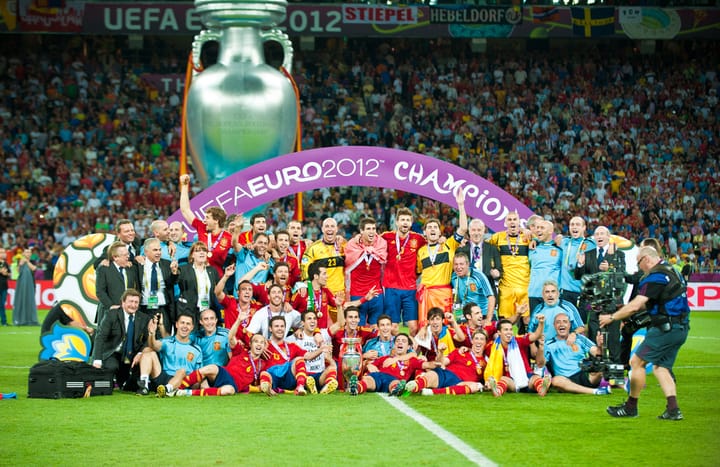Copa America Chronicles: A Look at the Last Five Winners
In this article, we look back at the last 5 Copa Americas before this summer's edition in the USA.

The Copa America, organized by CONMEBOL, stands as the oldest international soccer tournament, first held in 1916. It is not just a testament to the competitive spirit of South American soccer but also a cultural spectacle that unites nations in their passion for the sport. Its rich history is marked by iconic wins, memorable moments, and has had significant influence on the development of soccer in the continent.
Exploring the Copa America winners over the last decade reveals a narrative of dominance, resilience, and the sheer talent that the South American soccer teams bring to the global stage. This article delves into the champions from the 2011 tournament in Argentina to the latest edition, highlighting how the tournament has evolved while continuing to showcase the brilliance of teams like Brazil, Argentina, and Uruguay, amidst adapting to challenges including the COVID-19 pandemic.
2011 Copa America in Argentina
The 2011 Copa America, hosted in Argentina from July 1st to 24th, marked the 43rd edition of this prestigious tournament. Uruguay emerged victorious, securing their record 15th Copa America title by defeating Paraguay 3-0 in the final. This win not only underscored Uruguay's soccer prowess but also qualified them for the 2013 FIFA Confederations Cup in Brazil.
Tournament Details
- Host Cities: The matches were played across eight Argentine cities: Buenos Aires, Córdoba, Jujuy, La Plata, Mendoza, Salta, Santa Fe, and San Juan.
- Teams and Groupings: Twelve teams participated, divided into three groups. Each group conducted a round-robin tournament to determine which teams would advance.
- Scoring System: Teams received three points for a win and one for a draw. This system played a crucial role in determining the quarter-finalists, including the best two third-placed teams.
Key Matches and Players
- Final Match Highlights: In the decisive final, Uruguay's performance was stellar with Luis Suárez opening the scoring in the 11th minute followed by Diego Forlán, who netted twice (41st and 89th minutes).
- Outstanding Players: Luis Suárez was named Man of the Match. Other notable players included Paolo Guerrero as the top scorer of the tournament, Sebastián Coates recognized as the Best Young Player, and Justo Villar as the Best Goalkeeper.
Unique Aspects of the 2011 Edition
- Paraguay's Unusual Path: Interestingly, Paraguay reached the final without winning a single game during the tournament, a rare occurrence in Copa America history.
- Historical Context: This edition was notable for not featuring a final between the traditional powerhouses, Argentina and Brazil, which had last happened in 2001.
This edition of Copa America not only highlighted the competitive spirit of South American soccer but also brought to the fore the tactical acumen and resilience of teams like Uruguay and Paraguay.
2015 Copa America in Chile
The 2015 Copa America, marking the 44th edition of this historic tournament, was hosted by Chile from June 11 to July 4. This event was notable not only for its intense matches but also for Chile's first-ever tournament win. The victory was sealed in a dramatic penalty shootout against Argentina after a goalless draw in regular and extra time. The final, held at the Estadio Nacional Julio Martínez Prádanos in Santiago, was a nail-biting showcase of skill and nerves, ending in a 4-1 shootout triumph for the hosts.
Tournament Overview
- Teams and Format: Twelve teams participated, including guest nations from CONCACAF, Mexico and Jamaica. The teams were divided into three groups, with the top two from each group and the two best third-placed teams advancing to the knockout stages.
- Key Matches: Chile's journey to the final included a quarter-final victory over Uruguay and a semi-final win against Peru. Argentina reached the final after defeating Colombia and Paraguay in their knockout matches.
Final Match Highlights
- Date and Venue: July 4, 2015, at Estadio Nacional Julio Martínez Prádanos, Santiago.
- Match Outcome: 0-0 after extra time, Chile won 4-1 on penalties.
- Attendance and Conditions: The match was witnessed by 45,693 spectators under clear skies with temperatures around 20 °C.
Performances and Awards
- Man of the Match: Arturo Vidal of Chile, who played a crucial role throughout the tournament.
- Top Scorers: Eduardo Vargas of Chile and Paolo Guerrero of Peru, each scoring four goals.
- Notable Incidents: The match saw several yellow cards indicating a tightly contested battle.
This edition of the Copa America not only celebrated Chile's historic win but also highlighted the vibrant culture and enthusiastic support of South American soccer, leaving a memorable imprint on the tournament's storied legacy.
2016 Copa America Centenario in the United States
The 2016 Copa America Centenario, hosted by the United States, marked a significant milestone in international soccer, especially for the CONMEBOL and CONCACAF regions. This special edition celebrated 100 years of Copa America and featured an expanded lineup of 16 teams, highlighting its grandeur and the growing appeal of soccer in North America.
Expanded Tournament Format and Teams
- Host Nation: The United States, with matches spread across ten cities.
- Participating Teams: All ten teams from CONMEBOL and six from CONCACAF.
- Group Seeds and Schedule: Announced on December 17, 2015, ensuring a well-organized flow of matches.
Highlights from the Tournament
- Final Showdown: Held at MetLife Stadium, New Jersey, with a record attendance of 82,026.
- Champion: Chile clinched their second consecutive title, defeating Argentina 4-2 in penalties after a 0-0 draw.
- Notable Players: Lionel Messi, who briefly retired from international soccer post-tournament, and Eduardo Vargas, who won the Golden Boot with 6 goals.
Financial and Cultural Impact
- Economic Gains: The tournament was a financial success, with Chile earning $6.5 million as champions.
- Cultural Influence: Highlighted by performances from Pitbull and Becky G, the event fused sports with entertainment, showcasing the cultural diversity and sports enthusiasm prevalent in the United States.
This edition not only celebrated a century of Copa America but also set the stage for future international tournaments in the U.S., proving the country's capability to host global sports events and its matured soccer market.
2019 Copa America in Brazil
The 2019 Copa America, hosted by Brazil from June 14 to July 7, saw the host nation clinch their ninth title, their first since 2007. The tournament featured intense matches across six venues in five host cities, with a total of 26 matches played. Brazil emerged as champions by defeating Peru 3-1 in a riveting final held at the Estádio do Maracanã in Rio de Janeiro, attended by nearly 70,000 fans despite the rainy weather.
Group Stage Performance
Brazil's journey to the title was marked by dominant performances during the group stage:
- Match 1: Brazil vs. Bolivia - Brazil triumphed with a 3-0 victory.
- Match 2: Brazil vs. Venezuela - The teams drew 0-0.
- Match 3: Brazil vs. Peru - Brazil secured a commanding 5-0 win.
Knockout Stages
In the knockout stages, Brazil maintained their strong form, overcoming Argentina 2-0 in the semi-finals to set up a final clash with Peru, who had impressively beaten Chile 3-0.
Final Match Insights
The final was a showcase of Brazil's tactical prowess and resilience. Goals from Everton, Gabriel Jesus, and Richarlison sealed the victory. Peru's lone goal came from a penalty by Paolo Guerrero. Notably, Gabriel Jesus received a red card in the 70th minute, adding tension to the match.
Statistical Overview
- Possession: Brazil held 54% possession.
- Shots: Brazil had 12 shots, 3 on target; Peru had 7 shots, 2 on target.
- Corners: Brazil took 3 corners, Peru 4.
- Fouls: Brazil committed 25 fouls and received 2 yellow cards and 1 red card; Peru committed 21 fouls and received 3 yellow cards.
This edition of the Copa America not only highlighted Brazil's soccer excellence but also demonstrated their capacity to host a major international tournament, enhancing the festive atmosphere and passion that South American soccer is known for.
2021 Copa America in Brazil
The 2021 Copa America, hosted unexpectedly by Brazil due to unforeseen circumstances, marked a pivotal chapter in South American soccer. Originally planned to be co-hosted by Argentina and Colombia, the tournament faced relocation challenges due to the COVID-19 pandemic and social unrest in Colombia, ultimately being held from June 13 to July 10, 2021, in Brazil.
Key Tournament Details
- Venue and Date: The final was held at Estádio do Maracanã, Rio de Janeiro, on July 10, 2021.
- Attendance: Due to pandemic restrictions, the stadium operated at 10% capacity, allowing 6,500 spectators.
Match Highlights
- Final Score: Argentina 1, Brazil 0.
- Goal Details: Ángel Di María scored the decisive goal in the 22nd minute, marking a significant moment for Argentina.
- Possession Statistics: Argentina held 41% possession, contrasting with Brazil's 59%.
Player Achievements and Records
- Lionel Messi: Capturing his first major international title, Messi was not only pivotal on the field but also received the Best Player of the Tournament award.
- Emiliano Martínez: Named the Best Goalkeeper, his performance was crucial in securing Argentina's victory.
- Ángel Di María: Recognized for scoring the winning goal, his impact was felt deeply during the match.
Historical Context and Significance
- Argentina's Victory: This win marked Argentina's fifteenth Copa America title, their first since 1993, and extended their unbeaten streak to 20 matches.
- Brazil's Record: The host nation faced their first competitive defeat since the 2018 World Cup, highlighting the intense rivalry and the high stakes of the tournament.
This edition of the Copa America not only celebrated the resilience and adaptability of the teams and organizers but also underscored the deep-seated passion and enduring talent within South American soccer.




